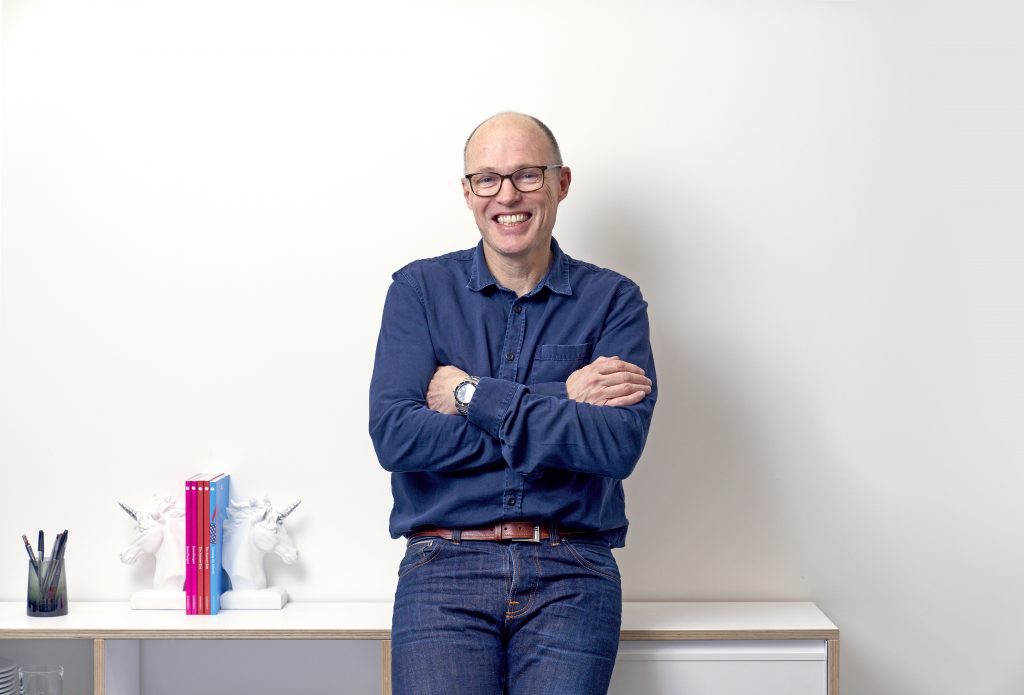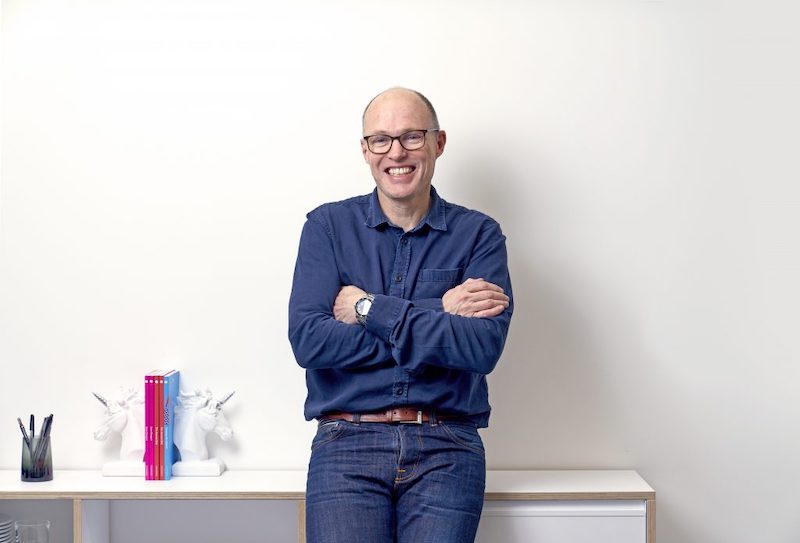VC Focus: An Interview with Stephen Millard
An Interview with Stephen Millard, Partner and Chief Platform Officer, Notion Capital and Founder, Included VC
Notion Capital is a leading UK VC, specialising in bringing B2B SaaS propositions to scale. Prepaid card provider, Soldo, asks Stephen how he creates the conditions for success with the extraordinary founders in Notion’s portfolio and across the wider European tech ecosystem. He is also the founder of Included, a 12-month VC Fellowship offering people from diverse and under-represented communities across Europe access to the world of Venture Capital.
What is Notion Capital’s investment strategy?
We look for high-growth B2B SaaS businesses across Europe, at or around Series A; companies that will build rapidly to $100M+ in revenues and then mature well beyond that. We’re looking for organisations who can transform entire industries.
In terms of talent, we’re looking for founders who have the desire, the potential and the ambition to build extraordinary success. We also look for people who have an insider’s insight into a market, but an outsider’s objectivity; because those are the people who will achieve something truly transformative.
So you’re looking for distilled disruptiveness irrespective of the sector?
Everything we do is B2B SaaS, so based around software and recurring-revenue business models. But beyond that, we have an open mind. If we realistically believe in investing in founders who are solving a problem that no-one else has solved before, then who are we to kid ourselves that we know what that solution is going to look like? We have to be open to investing in the very best founders who are solving existential pain in a B2B context.
We’re looking for founders who have the desire, the potential and the ambition to build extraordinary success. We also look for people who have an insider’s insight to a market, but an outsider’s objectivity; because those are the people who will achieve something truly transformative.
The SaaS roadmap is now well laid out, but the transformation of an industry is inherently riskier. And as you say, you don’t necessarily know what the transformed future looks like. How do you assess the opportunity for success against risk?
One of the reasons we invest slightly later-stage, at Series A, is that we are investing in companies that have achieved a degree of product/market fit. To isolate that, we’re asking questions like:
- Is there real clarity as to who your best (profitability, longevity) customers are?
- Is there consistency in customers who have been acquired?
- Are they renewing and expanding their contracts?
We’re looking for real confidence that the business is not just a solution for a handful of companies, but will be applicable to every company in that sector.
But customer relevance and impact – solving a real pain – is the starting point.
Second, we’re looking for repeatability in terms of creating ongoing value and impact for clients, because that is what will ultimately make the business scalable (i.e. keep and expand existing customers while attracting new ones). To support that, we want to see a pricing framework and go to market model that will allow the business to win customers rapidly but also scale up hugely.
Even all that is quite early stage. Even if we see repeatable customers, impact and pricing, we still need to take a step back and ask whether this truly has the potential to be a big company; which leads to two interrelated questions:
- Firstly, is there a true underlying capital efficiency to the business’ customer acquisition, and its ability to win those customers effectively?
- And secondly, it may be facing off against a small, tightly defined market right now; but is it actually adjacent to a very large market indeed?
At Series A there is therefore a paradox in that we like founders to take a very narrow view of the current market, but also to be thinking about how they will address a huge market.
By taking a slightly later-stage investment, we believe we can better isolate organisations that have those characteristics. They have momentum, with growth of 10% plus month on month. We can envisage improvements in lead velocity and time-to-value in average order size and revenue expansion, etc. That’s not to say it’s always going to play out in our favour, but these criteria give us more confidence that at least the very early challenges of product/market fit have been mitigated.
Earlier, you mentioned founders with “insiders’ insight, but outsiders’ objectivity”. All VCs talk about talented founders, but that is not a characteristic I’ve heard before…
The economist, Schumpeter, talks about “creative destruction”, the way new production methods replace old ones, wholesale and Clayton Christensen espoused this philosophy of disruptive innovation in his book The Innovators Dilemma. It’s the Elon Musk approach that says “I’m absolutely inside this industry, but I’m thinking about it in an entirely different way”. This is what “disruptive” businesses, and the people who found them, are all about and what we look for
A great example is Prague’s Mews Systems, who are developing a property management system which is transforming the relationship that hotels have with their customers through the technology that they use. The founders all come from the hotel industry themselves, but they fundamentally believed that the technology hotels are using is not fit for purpose. [On Mews’ website , the founders say, “We founded Mews because, as hoteliers ourselves, the Property Management System we needed for our properties didn’t exist and we were tearing our hair out in frustration with the usual hotel software suspects”].
So for us, the very best founders:
- Believe that there’s something badly broken within the industry they’re serving and know that because they are or have been insiders;
- But come at the problem from a totally different perspective with an outsiders objectivity
- Are ahead of the curve enough that many potential customers in the business are sufficiently used to the status quo that they might not even know they have that problem
That’s the kind of creative destructionist approach that generates scale by ripping everything down to build it up again from scratch.
Creative destruction is a cool narrative – a very Silicon Valley narrative. Is it always necessary to rip apart the past to build something new?
Not always; but the fastest-growing technology companies are invariably disrupting and replacing existing legacy technologies. It’s destructive to the degree of existing processes, practices and the tools that support them. Mews isn’t transforming the hotel industry per se, but it is revolutionising the way they operate and bringing it up to a new standard.
Our role is to invest in extraordinary people; their role is to build an extraordinary company. We can give them access to the most capable and experienced people, who can in turn give them the very best support and advice. But building the business That’s all them.
Series A is ahead of many of the hairpin turns and evolutions required to grow a business to scale. And those growth spurts aren’t getting any easier. How can you make life easier for the high growth business?
I think there’s a little bit of a misunderstanding as to the role of the venture capitalist. Our role is to invest in extraordinary people; their role is to build an extraordinary company. We don’t have any silver bullets, but we do have a pedigree in working in and then investing in, SaaS companies. We’ve invested in 60+, have around 50 in the portfolio and are constantly learning about what does and doesn’t work. We have a wealth of access to knowledge and people who are doing similar and complimentary things, so we can help founders, in turn, to learn and solve their problems faster.
We can give them access to the most capable and experienced people, who can, in turn, give them the very best support and advice, and critically helping them understand why and how to hire ever better people. But solving the problem? That’s on them. And I don’t mean that harshly, but it’s their business; we’re minority investors. The key thing here is that we repeatedly deliver on the experience of understanding the issues in running high-growth SaaS businesses; and can help them to solve problems faster or avoid pitfalls completely.
Growing a sales organisation, expanding to the US, sourcing talent six months ahead of time – for all these problems, we will know people in our portfolio who have tackled exactly those challenges. Or we will have connections outside the industry who can help. It’s not rocket science, just a focus on critical mass and taking an interest.
That brings me nicely to the current idea of the “full-service VC”…
I think there is some confusion about the idea of the ‘full-service VC’; if you want to call it that. People have to understand why we exist. We exist to return funds to our investors. That’s our overarching rationale. And we do that by taking equity stakes in great early-stage technology companies.. What matters most, therefore, is getting into the very best and ever better companies. We achieve that by having clarity in terms of our brand and focus to attract the best founders and having a well-earned reputation that helps us win those deals. That reputation is measured by the willingness of every founder we’ve invested in to say, ‘that was the single best decision I ever made’.
The role of the post-investment value we add is always to engineer that thought process, because when we come to the next investment – and we make four or five a year – everyone is ideally better than the previous fifty. And it’s getting more competitive. There are more VCs out there, and there is more money. So if we want to get into the best deals, we’ve got to deliver our existing founders a phenomenal experience. If you don’t differentiate, you’re just money.
Good people are becoming more expensive. The cities in which we operate – London, Berlin, Stockholm etc. are becoming more expensive. And the best deals are highly competitive. These issues then drive up the price. And because there’s a lot of money out there, this means that if a VC doesn’t have a differentiated proposition, the only way they can compete is by offering better terms.
We don’t want to play that game. We want to focus on building a reputation based on impact, value and experience, that allows us to win good deals and good prices. That’s good for us and for the founder, because they understand our business model in the same way as we understand theirs.
This interview is part of a series by Soldo, the prepaid company card solution that makes your expense accounting simple. You can read more interviews from Soldo’s interview series here.








